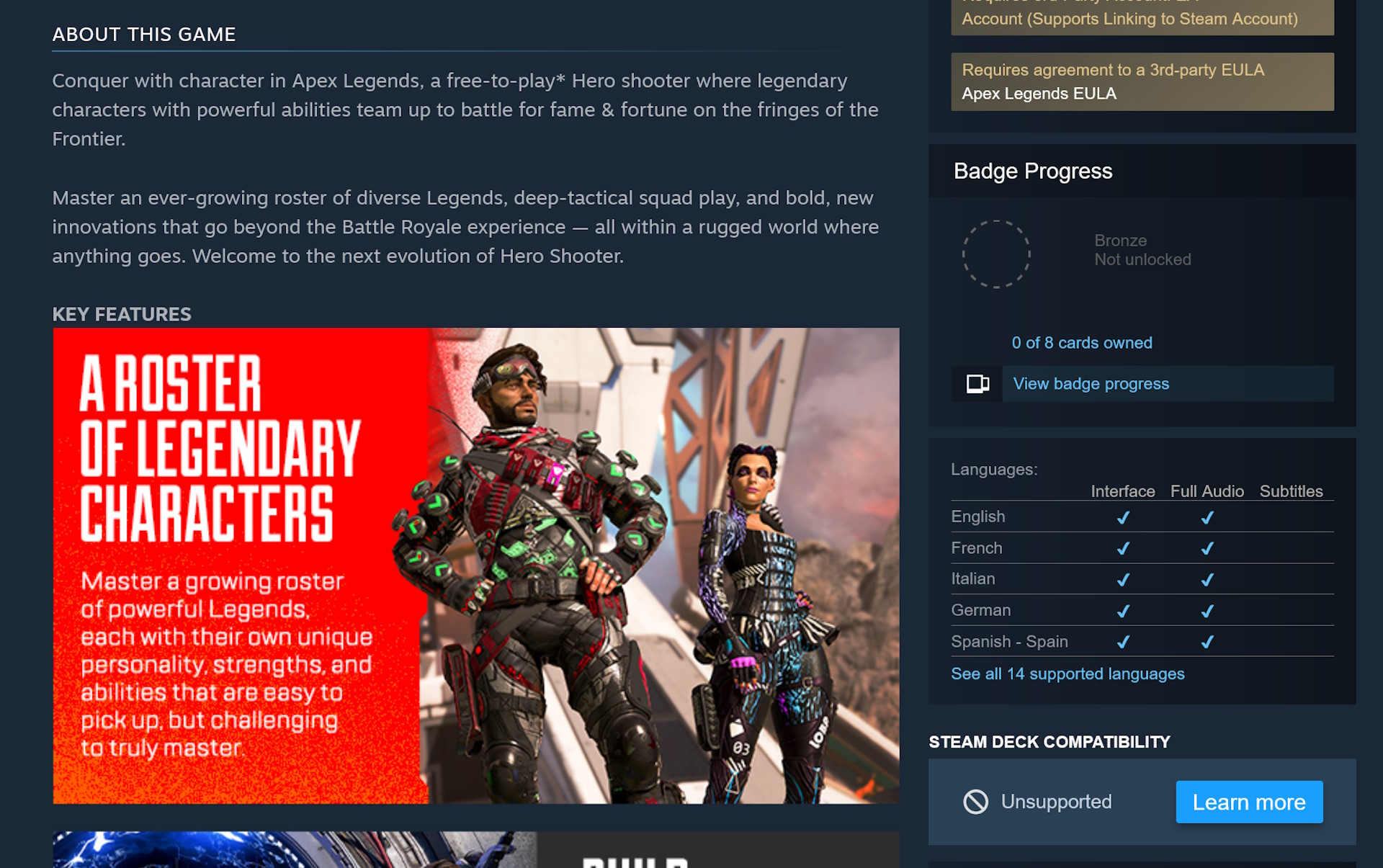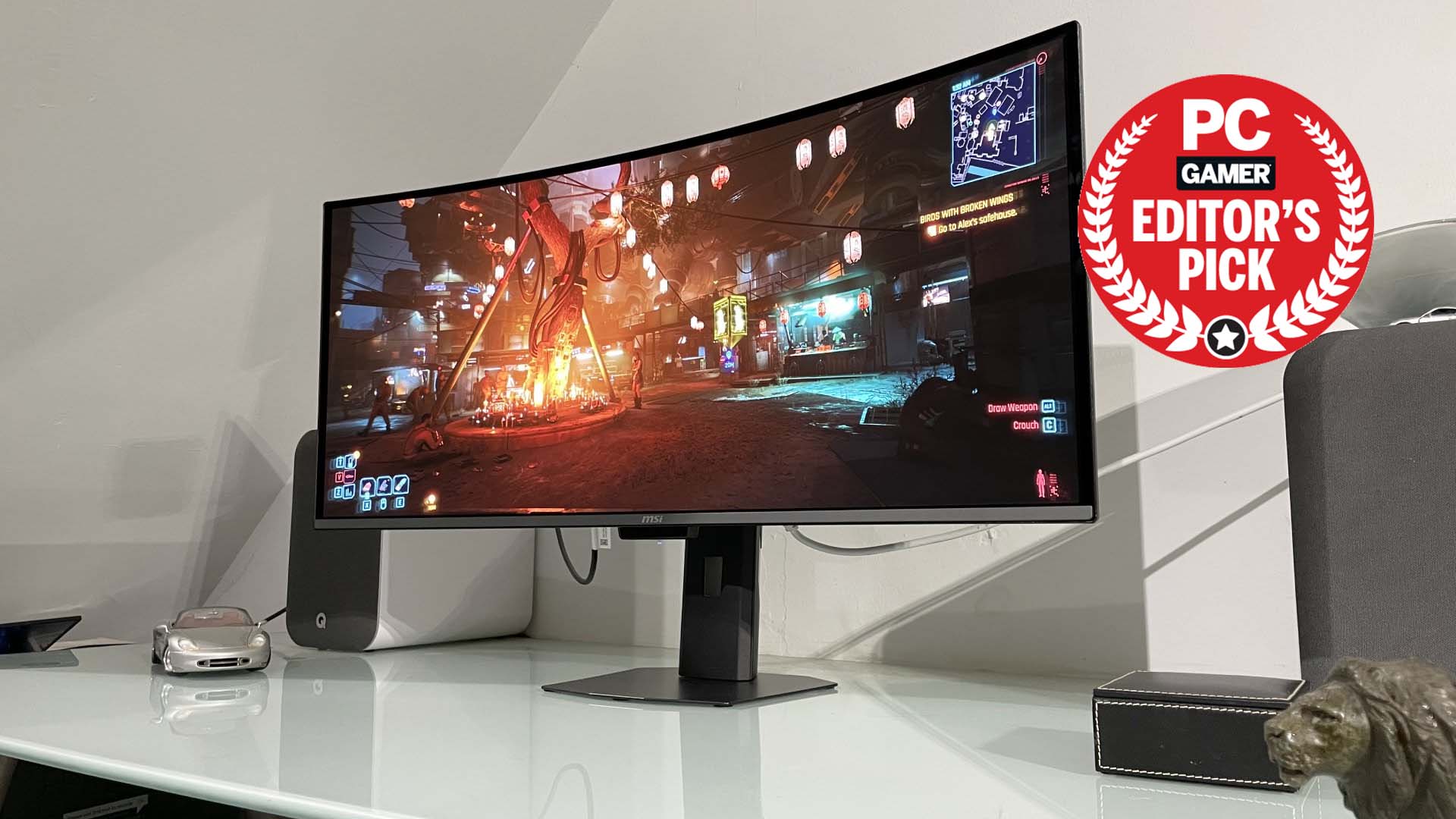Apex Legends ditches Steam Deck support: EA says Linux is 'a path for a variety of impactful exploits and cheats'
Access to the game on Linux-based systems is now blocked.

Bad news, Steam Deck shooters: Electronic Arts has determined that Linux is "a path for a variety of impactful exploits and cheats" in Apex Legends, and it has thus decided to block anyone using the OS from accessing the game.
"The openness of the Linux operating systems makes it an attractive one for cheaters and cheat developers," the Apex anticheat team wrote in an update explaining its decision.
"Linux cheats are indeed harder to detect and the data shows that they are growing at a rate that requires an outsized level of focus and attention from the team for a relatively small platform. There are also cases in which cheats for the Windows OS get emulated as if it's on Linux in order to increase the difficulty of detection and prevention."
Cutting off an entire branch of players is no small thing, but the anticheat team said it had to balance the "greater health" of the overall Apex player base with the number of legitimate players on Linux. "While the population of Linux users is small, their impact infected a fair amount of players’ games," it wrote.
As a result, effectively immediately Apex will no longer be playable on Linux-based systems, including the Steam Deck. Apex Legends on Steam had previously been categorized as "playable" on the Steam Deck, meaning it "may require some manual tweaking by the user to play," but it is now listed as "unsupported."
The update doesn't get into the nuts and bolts of why Linux is such a popular vector for cheating, or why cheats on Linux are so hard to detect, but it seems to come down to kernel mode anticheats being easy to work around in the Linux environment. "There is currently no reliable way for us to differentiate a legitimate Steam Deck from a malicious cheat claiming to be a Steam Deck (via Linux)," the anticheat team wrote.
Those concerns have been echoed, and elaborated on, by others: In an April blog post about its Vanguard anticheat, for instance, Riot Games said "Linux does not currently afford us sufficient ability to attest boot state or kernel modules, and the difficulty in securing it is only compounded by all the frustrating differences between distributions."
Keep up to date with the most important stories and the best deals, as picked by the PC Gamer team.
"Even allowing emulation is an exceptionally dangerous game, as many cheats could then just run on the host, manipulating or analyzing the VM in a way that would be invisible to Vanguard within it," Riot wrote.
"Half of anti-cheat is making sure the environment hasn't been tampered with, and this is extremely hard on Linux by design. Any backdoors we leave open for it are ones developers will immediately leverage for cheats, and yesterday, there were just over 800 Linux users on League. We have evaluated this risk to not be worth the payoff."
The reaction to the news on the Apex Legends subreddit is largely restrained: Some users are naturally upset or angry, but others seem to feel the decision is justified. "Staying on a more closed [Windows] environment to protect the game by sacrificing such a small % of gamers is a deal I'm ready to make, especially for more competitive games," redditor BetterProphet5585 wrote.
The big question is what sort of impact this will have on cheating in Apex Legends going forward, and several players have called on EA to share before/after numbers to demonstrate the effectiveness of the move, or lack thereof as the case may be; some are also no doubt hoping for a walkback if blocking Linux players proves to have little or no effect. For now, though, it's a done deal: If you want to keep playing Apex Legends on your Steam Deck, you're going to have to install windows.

Andy has been gaming on PCs from the very beginning, starting as a youngster with text adventures and primitive action games on a cassette-based TRS80. From there he graduated to the glory days of Sierra Online adventures and Microprose sims, ran a local BBS, learned how to build PCs, and developed a longstanding love of RPGs, immersive sims, and shooters. He began writing videogame news in 2007 for The Escapist and somehow managed to avoid getting fired until 2014, when he joined the storied ranks of PC Gamer. He covers all aspects of the industry, from new game announcements and patch notes to legal disputes, Twitch beefs, esports, and Henry Cavill. Lots of Henry Cavill.


